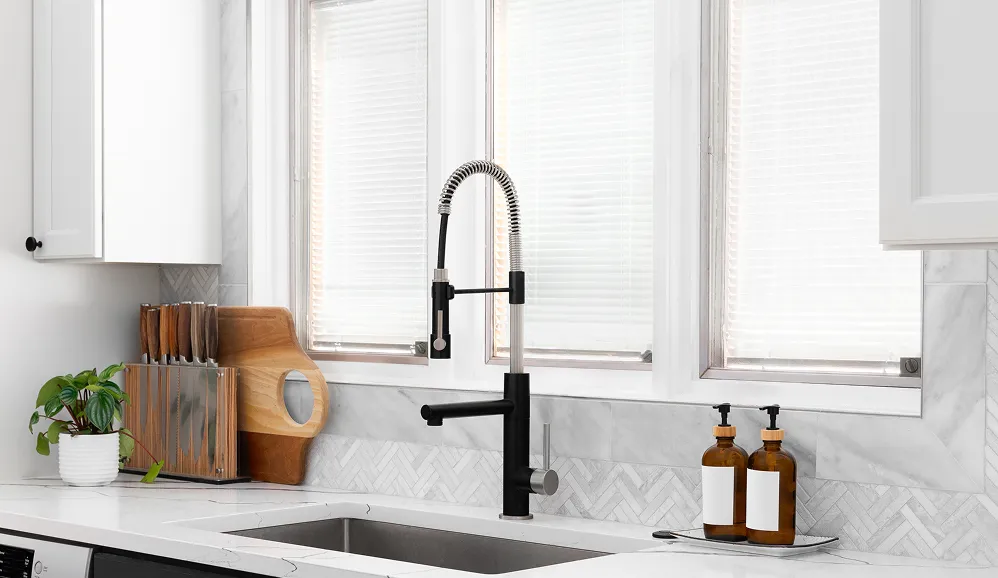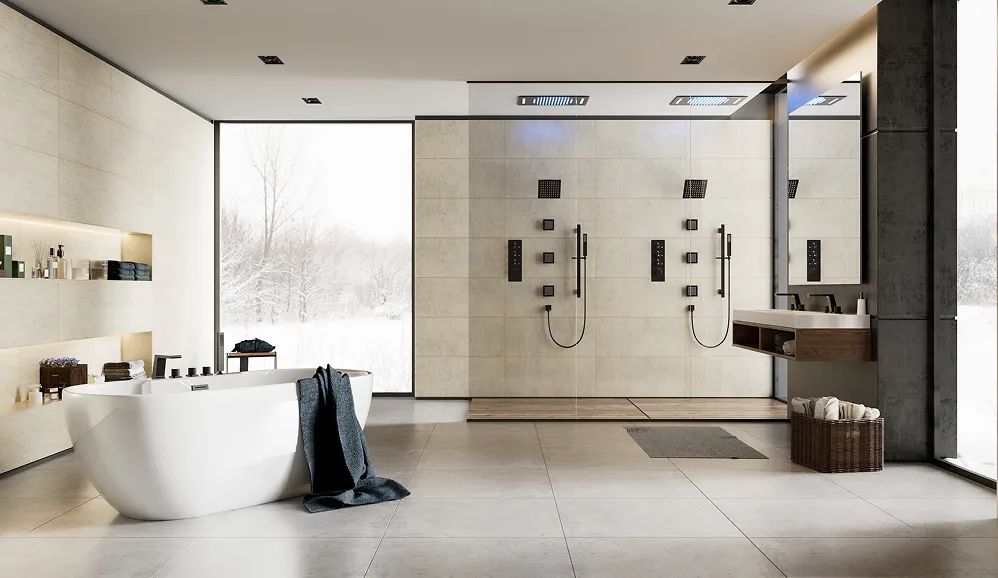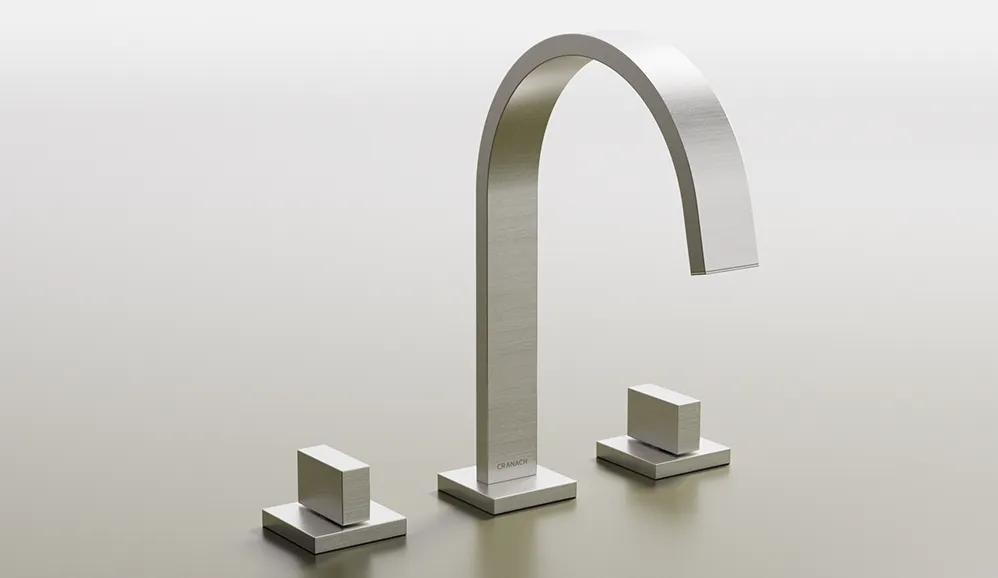So, the big question: “is it bad to shower everyday?” The short answer is, it’s not a simple yes or no. For many of us, a daily rinse isn’t strictly necessary and might even work against your skin’s natural defenses. It’s a modern habit that definitely deserves a closer look.
The Daily Shower Debate Unpacked
For generations, the daily shower has been a non-negotiable part of our routine—a ritual to kickstart the morning or wash away the day. But what if this ingrained habit isn’t the golden rule of hygiene we’ve always believed it to be? The conversation is starting to shift from automatic routine to a more thoughtful approach, one that sees our skin as a living, breathing ecosystem.
Think of it like this: frequent washing, especially with hot water and harsh soaps, can throw your skin’s delicate balance out of whack.
This process can strip away the natural oils and beneficial bacteria that keep your skin hydrated, protected, and healthy. It’s a delicate balance that’s surprisingly easy to disrupt.
A Cultural Habit Meets Modern Science
Let’s be clear: our obsession with daily showers is a pretty new thing. Go back a century, and daily bathing was far from the norm. It was a major cultural shift that led us here, with about two-thirds of Americans now showering every day.
While this reflects our modern standards of cleanliness, it also raises important questions about the health of our skin—our body’s largest organ. Your skin isn’t just a waterproof covering; it’s a crucial protective barrier that hosts a thriving community of microorganisms, known as the skin microbiome, which helps fend off harmful invaders.
Before we dive deeper, let’s lay out the pros and cons to see the arguments side-by-side.
Daily Showers: A Quick Comparison
This table breaks down the main points for and against showering every day, giving you a quick snapshot of the core issues at play.
| Aspect | Potential Benefits of Daily Showers | Potential Drawbacks of Daily Showers |
|---|---|---|
| Hygiene | Effectively removes the day’s sweat, dirt, allergens, and grime. | Can strip away beneficial bacteria that form a protective shield on the skin. |
| Skin Health | Helps manage oily skin types and provides a refreshing feeling. | May lead to dryness, irritation, and disrupt the skin’s natural moisture barrier. |
| Comfort | A warm shower can be a great way to wake up or relax before sleep. | Hot water can worsen conditions like eczema and cause excessive dryness. |
Seeing it all laid out makes it clear that the “right” answer really depends on your personal needs, skin type, and lifestyle.
Your Bathroom Setup Matters, Too
The tools in your shower are just as important as how often you use them. A modern shower system can make a huge difference in protecting your skin’s health.
How? By giving you precise control over water temperature and pressure. This helps you avoid the overly hot, high-pressure streams that can strip away those vital natural oils. You can learn more about finding the perfect balance in our detailed guide on the pros and cons of daily showering.
When you upgrade to a high-quality shower system from a trusted brand like CRANACH, you’re not just buying a fixture. You’re investing in the ability to create a gentler, more customized shower that supports your skin’s natural defenses instead of fighting against them.
How Your Skin Protects Itself Naturally
To get to the bottom of the “is it bad to shower everyday” debate, we first need to look at the incredible defense system your skin already has in place. Your skin isn’t just a simple outer layer; it’s a dynamic, living organ with a sophisticated shield designed to protect you from the outside world.
This shield has two crucial components working together: the acid mantle and the skin microbiome.
The Acid Mantle: Your Skin’s Protective Film
Think of the acid mantle as a super thin, slightly acidic film sitting on your skin’s surface. It’s a natural cocktail of sebum (your body’s oils) and sweat. This subtle acidity isn’t a flaw—it’s a feature. It creates a hostile environment for many harmful bacteria and pathogens, stopping them in their tracks before they can cause trouble.
This natural barrier is also key for locking in moisture, keeping your skin soft and hydrated. When the acid mantle is healthy and intact, your skin can properly hydrate itself from the inside out.
The Microbiome: Your Skin’s Living Armor
Working right alongside the acid mantle is your skin microbiome. This is a bustling community of trillions of microorganisms, including tons of beneficial bacteria. This isn’t something you want to scrub away; it’s your skin’s first line of defense. These “good” bacteria are like a well-trained security force, helping to train your immune system and actively fighting off invading germs.
According to the American Academy of Dermatology Association, this delicate balance is key. Disrupting it can compromise your skin’s ability to protect itself, potentially leading to dryness, itchiness, and flare-ups of conditions like eczema.
A healthy microbiome is vital. Each time you aggressively scrub or use harsh soaps, you risk wiping out these essential allies, leaving your skin’s defenses weakened and vulnerable.
How Daily Showers Can Weaken Those Defenses
While a shower feels refreshing, the process can unintentionally dismantle this natural protection. The combination of hot water and soap acts like a solvent, stripping away the very sebum that forms your acid mantle. At the same time, antibacterial cleansers can wipe out both good and bad bacteria without distinction, throwing your microbiome into chaos.
This is why dermatologists often advise against over-washing. As Harvard Health Publishing points out, healthy skin maintains a balanced community of oils and bacteria that protect against pathogens. Frequent washing can remove these defenses, making the skin dry, irritated, and more prone to cracks that invite infection.
It creates a vicious cycle of damage:
- Stripped Oils: Your skin feels tight and “squeaky clean,” which is actually a sign that it’s been stripped of its natural oils and is overly dry.
- Compromised Barrier: Without its protective oils, your skin loses moisture much more rapidly.
- Microbiome Disruption: Beneficial bacteria are washed away, leaving your skin less equipped to fight off harmful microbes.
This is where a modern shower system can play a more supportive role. By giving you precise control over water temperature, a quality system from CRANACH helps you avoid the scalding heat that’s most damaging to your skin’s natural oils. This allows for a gentle, effective cleanse that works with your skin, not against it. You can explore a collection of these advanced systems on the CRANACH product page.
The Real Benefits of Showering Less
It might sound strange to hear that skipping a shower can actually be a good thing, but the science is pretty clear. Giving your skin a break from the daily deluge unlocks some impressive advantages. This isn’t about being unhygienic; it’s about shifting from a rigid habit to listening to what your body really needs. The result? Healthier skin and a happier planet.
One of the biggest wins is for your skin microbiome. This is the invisible ecosystem of good bacteria living on your skin, and it’s your first line of defense against pathogens. When you shower less often, you give this delicate community a chance to flourish. For anyone dealing with chronic skin issues, this can be a game-changer.
By preserving your skin’s natural oils and microbial balance, showering less can lead to a noticeable drop in the severity of conditions like eczema and dermatitis. Your skin simply becomes less prone to the dryness and irritation that often trigger flare-ups.
This hands-off approach lets your skin get better at regulating its own moisture, meaning you might find yourself needing less lotion to stay hydrated.
Beyond Your Skin Health
The ripple effects of showering less go far beyond personal well-being. There’s a huge environmental piece to this puzzle. Every shower you take uses a surprising amount of water and the energy required to heat it up. Even small tweaks to your routine can add up to a massive collective impact.
Think about this: the U.S. Environmental Protection Agency says a standard showerhead pumps out 2.5 gallons of water per minute. So, a 10-minute daily shower translates to over 9,000 gallons of water for just one person each year. If you cut back by just a few showers a week, you’re suddenly saving thousands of gallons and shrinking your carbon footprint. You can get a closer look at the numbers in our guide on how many gallons of water a shower uses.
A Smarter Approach to Hygiene
Ultimately, questioning the “must-shower-daily” rule leads to a more intelligent and sustainable way of thinking about personal care. It pushes back against the cultural idea that being “too clean” is the only way to be healthy.
Instead of a full, soapy shower every single day, you can stay perfectly fresh with a few simple alternatives:
- Targeted Cleansing: On your off days, just use a washcloth to clean the important spots, like under your arms and your groin.
- Cool Rinses: If you got a little sweaty, a quick rinse with lukewarm water—no soap needed—is often enough to feel refreshed without stripping your skin.
- Gentle Products: When you do hit the shower, choose gentle, pH-balanced cleansers that support your skin’s natural barrier instead of blasting it away.
Adopting this mindset is all about listening to your body while making a choice that’s kinder to the environment. It’s a win-win.
Finding Your Perfect Shower Frequency
Figuring out the ideal shower schedule isn’t about following some universal rule. It’s about listening to your body and creating a routine that works for your specific lifestyle. The question of “is it bad to shower everyday” honestly doesn’t have a simple yes or no answer, because everything from your skin type and your job to the climate you live in plays a huge part.
Think of it like watering a plant. A succulent sitting in a cool, dim room needs way less water than a fern in a sunny, humid greenhouse. Your skin works on a similar principle—it needs a unique approach to stay healthy and balanced.
Key Factors That Influence Your Shower Schedule
To dial in your perfect routine, start by looking at these four key areas. Each one gives you clues about whether a daily shower is helping or hurting your skin’s natural defenses.
- Your Skin Type: Is your skin naturally oily, dry, or sensitive? Oily skin can usually handle daily washing just fine. But if your skin is on the dry or sensitive side, you’ll likely benefit from less frequent, gentler cleansing to keep its protective barrier intact.
- Your Activity Level: The hygiene needs of someone with a desk job are completely different from a construction worker, an athlete, or a chef. If your day involves heavy sweating, getting dirty, or being exposed to grime, a daily rinse becomes a lot more practical and necessary.
- Your Local Climate: Your environment really matters here. Someone living in a hot, humid place like Florida will probably need to shower more often than a person in a cold, dry region like Montana, especially during winter when skin is already struggling with dryness.
- Your Age: As we get older, our skin naturally gets thinner and produces less oil. According to dermatologists, this means an older adult might find that showering every two or three days is perfectly fine for hygiene and much better for preventing excessive dryness.
Listening to Your Body Is the Best Guide
At the end of the day, your skin is going to tell you exactly what it needs. If you step out of the shower and your skin feels tight, itchy, or “squeaky clean,” those are all warning signs that you’ve stripped away its natural, protective oils. That’s your cue to rethink how often you’re showering, how hot the water is, or what products you’re using.
On the flip side, if you notice clogged pores or irritation on the days you skip a shower, your skin might be telling you it needs more regular cleansing. The goal isn’t to be squeaky, it’s to find that sweet spot where your skin feels comfortable, hydrated, and clean—not stripped raw.
A modern shower system can be a game-changer in finding this balance. For example, this CRANACH shower system gives you precise control over your whole experience.
Being able to easily fine-tune the water temperature and flow lets you create a gentler, more customized shower that caters directly to your skin’s needs on any given day. This kind of control helps you support your skin’s health, turning your daily shower from a potentially damaging habit into a genuinely therapeutic moment. You can check out all the options in the CRANACH shower system collection.
What Is Your Ideal Shower Schedule?
Not sure where to start? This table breaks down the key factors to help you pinpoint the right frequency for you.
| Factor | Recommendation | Why It Matters |
|---|---|---|
| Skin Type | Oily/Acne-Prone: Daily | Helps remove excess sebum and prevent clogged pores. |
| Dry/Sensitive/Eczema: Every 2-3 days | Preserves natural oils (sebum) that protect and moisturize the skin. | |
| Normal: Daily or every other day | Flexible, depending on other factors. Listen to your skin for signs of dryness. | |
| Activity Level | Sedentary/Desk Job: Every other day | Less sweat and dirt accumulation means daily washing isn’t always necessary. |
| Active/Sweaty Job: Daily | Important for removing sweat, bacteria, and grime to prevent body odor and skin issues. | |
| Climate | Hot & Humid: Daily | Frequent showering helps you stay cool and removes sweat that can lead to irritation. |
| Cold & Dry: Every 2-3 days | Cold, dry air already strips moisture from the skin; less frequent showering helps retain it. | |
| Age | Children & Teens: Daily or every other day | Activity levels are often high, but skin can still be sensitive. |
| Adults: Varies (see other factors) | Based on a combination of skin type, activity, and climate. | |
| Older Adults (65+): Every 2-3 days | Skin becomes thinner and drier with age, making it more vulnerable to over-washing. |
Remember, this is just a guide. The best approach is to start with these recommendations and adjust based on how your skin feels. The ultimate goal is to keep your skin healthy, comfortable, and clean.
Developing Smarter Shower Habits
Let’s move beyond the “how often should I shower” debate for a moment. The way you shower has a massive impact on your skin’s health, maybe even more so than the frequency. With a few simple tweaks, you can turn your daily rinse from a potentially damaging habit into something truly beneficial.
This isn’t about a total overhaul of your routine. We’re talking about small, consistent adjustments that protect your skin’s natural defenses, leaving it more hydrated and resilient for the long haul.
The Right Way to Wash
First things first: turn down the heat. A steaming hot shower feels amazing, but it’s one of the worst offenders for stripping away the protective oils your skin needs. Your best bet is to aim for lukewarm water—it gets the job done without causing that tight, dry feeling afterward.
Next, rethink your soap strategy. You really don’t need to lather up your entire body from head to toe. Just focus on the areas that actually need it, like your underarms, groin, and feet. Using a gentle, pH-balanced cleanser in these spots gets you clean without disrupting the delicate microbiome on your arms, legs, and torso.
Keep It Brief and Follow Up
Time is also a factor. Try to keep your showers relatively short, somewhere in the 5 to 10-minute range. That’s plenty of time to get clean without overexposing your skin to water and cleansers, which can ironically lead to dehydration.
Once you’re out, resist the urge to vigorously rub yourself dry. Instead, gently pat your skin with a soft towel. And here’s the crucial final step: apply moisturizer while your skin is still a little damp. This simple action locks in hydration and gives your skin’s protective barrier a much-needed boost.
A 2018 study in the International Journal of Nursing Studies30067-2/fulltext) found that proper bathing habits can seriously improve self-reported health, skin condition, and even reduce stress. It really drives home the point that how you wash is just as important as how often.
Upgrade Your Shower Environment
The quality of your water and even your shower hardware can play a surprisingly big role in your skin’s health. A high-quality shower system, for instance, can make a world of difference. Many advanced models, like those from CRANACH, come with superior water filtration that helps remove common skin irritants like chlorine.
This filtered water is much gentler on your skin and hair, cutting down on dryness and irritation. An effective shower system also gives you better control over water pressure—another key factor for a skin-friendly shower. If you’re dealing with weak flow, you can learn how to increase water pressure in your shower to improve the experience. Investing in a premium CRANACH shower system is really an investment in your skin’s long-term health.
Achieving Your Ideal Hygiene Balance
So, is it bad to shower everyday? The real answer is, it’s complicated. While a daily shower won’t automatically harm you, for many people, it’s just not necessary. It can even be counterproductive, especially if you have sensitive or dry skin. This isn’t about following rigid rules; it’s about finding a mindful, personalized routine that puts your skin’s health first.
The best hygiene routine is always the one that works for your unique body and lifestyle. Your skin will tell you what it needs. If you’re noticing tightness, itching, or dryness, those are clear signals to adjust your habits. Listening to those cues is crucial, particularly for delicate skin, which requires extra care—something you’ll understand well if you’ve ever considered how long after a tattoo you can shower normally.
Putting these smarter showering habits into practice is much easier when you have the right tools. Upgrading your bathroom with something from the CRANACH shower system collection gives you features like precise temperature control and better water filtration. Think of it as an investment in your skin’s long-term health and your overall well-being.
Upgrading your shower is a direct investment in healthier skin. A CRANACH shower system gives you precise temperature control and advanced filtration, creating a gentler, more supportive environment for your skin’s natural balance. Explore our collection at cranachhome.com.










